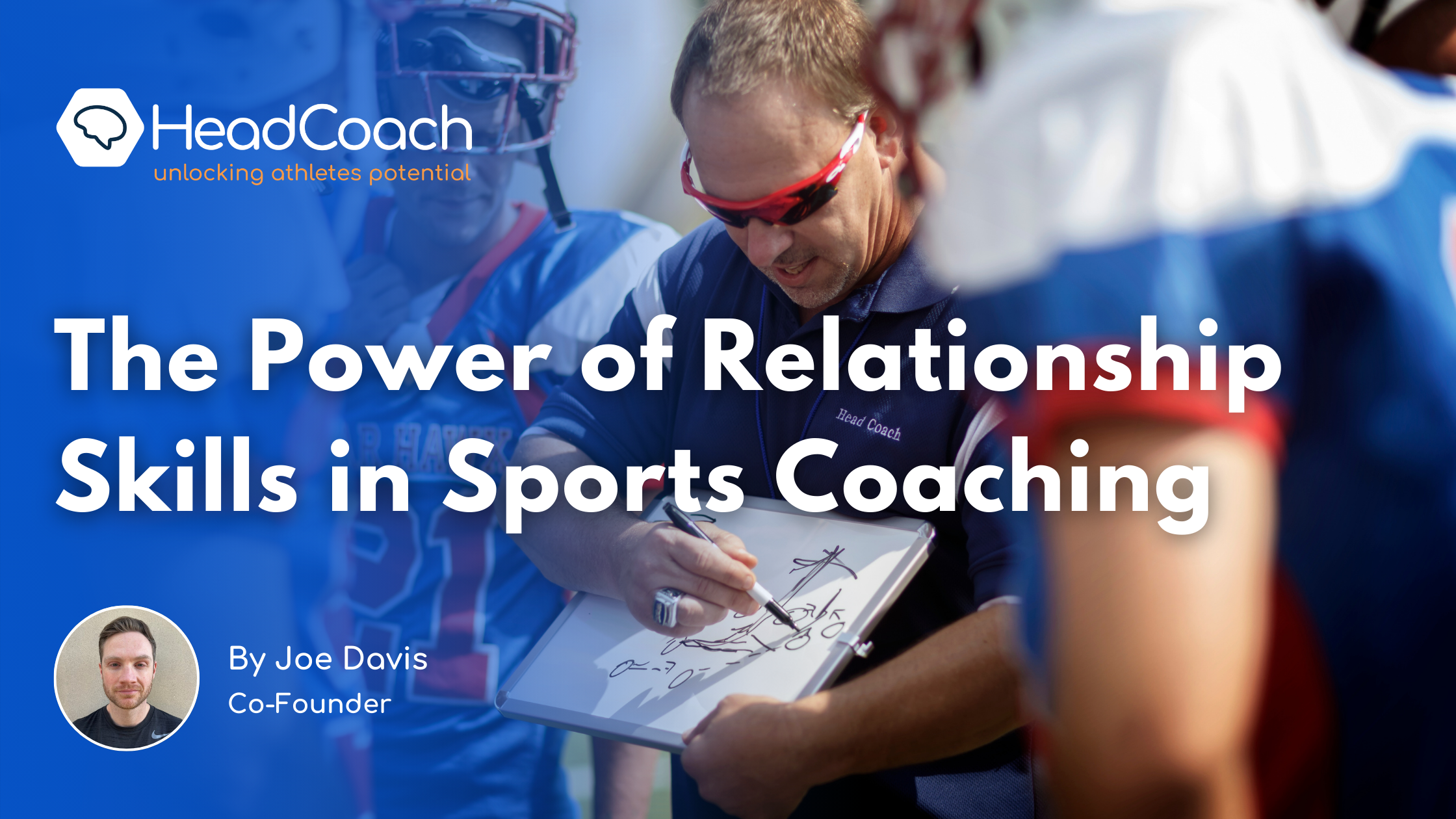When we think about sports coaching, our minds often jump to tactical genius, physical conditioning, and the ability to inspire through motivational speeches. While these elements are undeniably crucial, there is an often underappreciated Emotional Intelligence competency that can make or break a coach's effectiveness: relationship skills. Developing and maintaining strong relationships with athletes, staff, and the broader community is essential for any coach aiming for long-term success. At HeadCoach, we help coaches systematically build their ability to cultivate quality relationships through our innovative mobile app. Our personalized Emotional Intelligence skills training programme is practical and engaging and equips coaches with the tools to thrive.
Building Trust and Respect
At the heart of any effective coaching relationship lies trust. Athletes need to believe that their coach has their best interests at heart. This trust is not built overnight; it requires consistent, genuine effort. Coaches who take the time to get to know their athletes, understand their motivations, and show a genuine interest in their lives outside of sports are more likely to earn this trust. Respect is a two-way street, and when athletes feel respected, they are more likely to reciprocate, creating a positive and collaborative environment.
For instance, legendary basketball coach John Wooden was renowned not only for his impressive record but also for his deep, personal connections with his players. He believed that understanding each player's personality, strengths, and weaknesses was crucial to building a cohesive and motivated team. His ability to foster trust and respect translated into unparalleled success on the court.
Enhancing Communication
Effective communication is a cornerstone of successful coaching. This goes beyond simply giving instructions or feedback. It involves active listening and the ability to convey messages clearly and positively. Coaches with strong relationship skills are adept at reading their athletes' non-verbal cues and emotions, allowing them to address issues before they escalate.
Consider the role of a soccer coach during a high-stakes match. A coach who can calmly and clearly communicate tactical adjustments, while also recognizing and addressing players' anxieties, is far more effective than one who simply barks orders. This level of nuanced communication fosters a sense of security and confidence among athletes, enabling them to perform at their best.
Fostering a Positive Team Culture
A coach's relationship skills significantly influence the overall team culture. Teams with a challenging and supportive culture tend to perform better and have higher levels of athlete satisfaction. Coaches who prioritize relationship-building are more likely to create an environment where athletes feel valued and supported, leading to improved morale and cohesion.
Pat Summitt, the iconic women's basketball coach at the University of Tennessee, exemplified this approach. She emphasized the importance of family, loyalty, and mutual support within her teams. Summitt's dedication to building a positive team culture was a key factor in her teams' remarkable achievements and the enduring loyalty of her players.
Long-Term Athlete Development
Relationship skills are not just about immediate performance; they also play a vital role in the long-term development of athletes. Coaches who build strong relationships with their athletes are better positioned to guide them through the various stages of their careers. This mentorship goes beyond technical skills and extends to personal development, life skills, and career guidance.
For example, a track and field coach who understands an athlete's academic pressures and personal aspirations can tailor their training programme to balance athletic and academic commitments. This holistic approach not only benefits the athlete's overall well-being but also enhances their long-term performance and success.
If you are interested in developing your relationship skills and taking your coaching to another level, check out HeadCoach in the app store and claim your free 30-day trial.
Wrapping Up
Relationship skills are an indispensable aspect of effective sports coaching. They are the foundation upon which trust, respect, and effective communication are built. Coaches who excel in building relationships create a positive team culture and support the long-term development of their athletes. These skills are not merely complementary to technical and tactical expertise; they are integral to a coach's success and the overall success of their team.
Investing in relationship skills transforms coaches from mere instructors to mentors and leaders. It fosters an environment where athletes can thrive, both on and off the field, paving the way for sustained success and fulfillment in the world of sports.





Leave a Comment